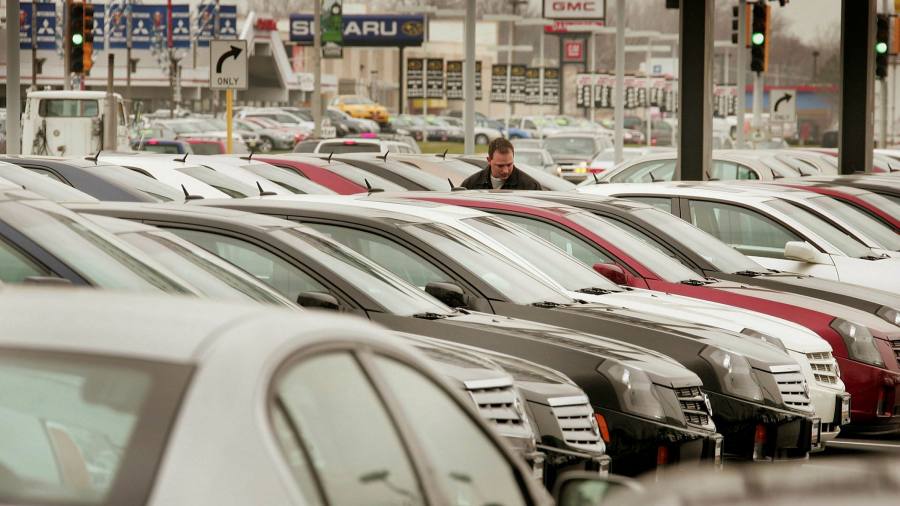[ad_1]
While whizzy assets from Tesla to bitcoin have grabbed investors’ attention, an old-fashioned one has quietly enjoyed a strong run in the Covid-19 era: auto loans.
The prices of bonds backed by auto loans have hit multi-year highs. The riskier triple-B groups of auto-backed bonds now trade with yields just 0.7 percentage points higher than Treasuries of similar maturities, according to JPMorgan. That extra return over the world’s premier risk-free asset has shrunk by 0.3 percentage points from its previous lows in January 2020, before the coronavirus crisis began.

Even as yields in the $220bn auto-backed bond market have fallen due to the rally in prices, the interest rates lenders charge for loans have barely declined, thanks to strong demand for cars among consumers.
“Auto has been a true Covid winner,†said Jennifer LaClair, chief financial officer of Ally Financial, the online-only bank that grew out of the finance arm of General Motors and has the majority of its loan book in autos. Ally’s share price is 30 per cent above its pre-Covid highs.
The short lifespan of auto loans — three to five years, generally — means borrowers do not tend to refinance. The loans also consume less of a household’s income than other common forms of debt. “Unlike mortgages where [1 percentage point] . . . is worth hundreds of dollars a month, the difference between 6 and 7 per cent is around $12 a month†on a typical loan, LaClair said.Â
The average yield on an Ally retail car loan is just under 7 per cent — at a time when fixed rate 30-year mortgages under 3 per cent are increasingly common. That means lenders such as Ally have been able to keep hold of margins that have shrunk in other asset classes.
New auto sales in the fourth quarter were down an estimated 5.7 per cent from a year earlier, according to Edmunds, a research firm. But, as Edmunds analyst Ivan Drury points out, that is largely down to rental fleets and other corporate customers, which usually account for 10-15 per cent of total sales.
Retail demand, by contrast, is “extremely strongâ€, Drury said, noting that cars are sitting on dealers’ lots for 57 days, on average, the lowest in at least five years. Used cars are also in high demand, providing good recovery values for lenders when borrowers default.Â
Stimulus checks dealt out as part of the government’s coronavirus relief package mean that credit quality has held up. Delinquencies and loans written off were down significantly in the fourth quarter, compared with the year before, at Ally and other prime and near-prime auto lenders such as Capital One, Wells Fargo and JPMorgan. Santander Consumer, a subprime specialist, had a loan charge-off rate of 3.5 per cent in the fourth quarter, down from 8.5 per a year before.
Conditions for subprime auto lenders catering to weaker borrowers are “excellentâ€, said Jefferies analyst John Hecht. “Santander is running at a charge-off level that is a third of normal, and while volumes are flat year over, they have become more selective — their loan to value ratios are down.†The number of Santander customers in payment forbearance is back to pre-Covid levels, too.
Jennifer Thomas, an analyst at asset manager Loomis Sayles, argued that part of the reason loan pricing had remained strong was that lenders were hesitating to lower interest rates, given concerns about what would happen to credit quality when government stimulus eventually expired.
“Performance has been propped up by stimulus, no doubt,†she said. On a call with investors, Capital One’s chief executive Richard Fairbank agreed. “We expect auto credit metrics to increase from their unusually low levels as auction prices [for used cars] normalise and the temporary impacts of Covid forbearance play out,â€Â he added.
Additional reporting by Joe Rennison
[ad_2]
Source link





